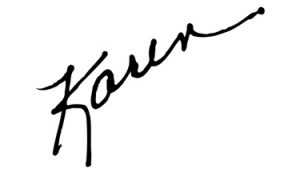
You want to work where?!?”
For years we began every session we facilitated with a ground rule about not using electronics in meetings… in 2018, that dog won’t hunt. The younger the group the more we know they can’t be fully present without their devices. At a strategic planning session last week that included people from ages 14-75, there was more than one young person writing their envisioned future on their phone…. sitting right next to folks writing with a pencil and paper!
A few years ago our Generations at Work Series explored what happens when different age cohorts mix at the office. From boomers to millennials, we looked at the 50’s, 40’s, 30’s, and 20’s – how those age groups behaved differently – and how they could work better together. In an age where four generations are working side by side it is incredibly valuable to look at each new generation with a view of not just how we are different – but the values and interests we share.
We decided to revisit the series today because significant changes in the workforce are coming our way and it is time to get ready. As Boomers head to retirement at rates of 10,000 per day (or 4 million a year), Generation X are marching into their 50’s. We blinked and the oldest Millennials are in their late 30s. That can only mean one thing – the next generation is beginning to graduate from college, poised and ready to shake up the way we work. This article will share with you what we know about this generation and how to prepare for working with them. If you are part of this generation we’ll share ideas to help prepare you today for a better career tomorrow.
Pew Research defines the importance of generational research as “a way to understand how different formative experiences…interact with the life-cycle and aging process to shape people’s views of the world”. We all know that individual events in our lives can shape us. Generational research says that events and shifts can collectively shape us, too.
Defining a generation by birth year is not an exact science. And since the youngest of this generation are barely out of diapers, there is still a lot to learn about them. Still, extensive analysis has already been invested into understanding this rising group.
Pew scholars define post-millennials (often called Generation Z) as born after 1997. The 9/11 terrorist attacks is one of the key events that differentiate Millennials and post-Millennials. Millennials have some personal recollection of 9/11 while post-Millennials only know it as history.
In fact, everyday upheaval is part of what defines this generation thus far. The New York Times compared the innocence of Millennials “…raised during the boom times and relative peace of the 1990s, only to see their sunny world dashed by the Sept. 11 attacks and two economic crashes, in 2000 and 2008…” with the next generation who “has had its eyes open from the beginning, coming along in the aftermath of those cataclysms in the era of the war on terror and the Great Recession.”
Raised by Generation X, post-millenials are both the product of the uncertainty in their formative years and the safety obsession of their parents. The result, says psychology professor Jean Twenge in her book iGen, is a terrified generation. Some don’t wander far from home, they don’t drink and drive, and they worry about interpersonal interactions. However, their world-weary awareness at such a young age also makes them savvy. They are ready to work hard, plan, and save. They saw their parents lose their jobs in the recession and learned from millennials that an expensive post-graduate degree doesn’t necessarily save you from debt and living with your parents into adulthood. In an introduction to this age group, Fast Company cited a survey of 400 15-19 year olds that found “60% of them already have savings accounts and 71% say they are focused on saving for the future. Their top three priorities are getting a job, finishing college, and safeguarding money for the years to come.”
This generation are also the first complete digital natives. Father (Gen X) and son (Gen Z) authors David and Jonah Stillman explore this in their book Gen Z @ Work. They note that in Gen Z’s lifetime, the percentage of adults with access to the internet has gone from 14% in 1995 to 87% in 2014. Where previous generations might have seen one or two major leaps in technology, Gen Z expects one every few years. They call Gen Z a “phigital” generation that “lives in a world where because of rapid advances in technology the barriers between physical and digital have been eliminated”. This bleeding of physical and digital worlds and access to instant knowledge is perhaps the most important (and most misunderstood) defining characteristic of this age cohort, and one that will certainly change the workspace.

Working with and welcoming the next generation
You may be raising Gen Z at home, hearing about them in the news, or seeing them in interviews. Here’s what post-Millenials want you to know about working with them.
Millennials and Gen Z together represent about 50% of the overall population but Gen Z are not Millennials 2.0 – they may share common traits but don’t take it for granted they have the same worldview as the previous generation.
This generation will demand the same “effective managers, work-life integration, inclusion and career development” that their millennial predecessors did. Don’t take this growing demographic’s needs for granted – because they have even more options and even less to lose.
You may have heard of the “8-second attention span.” It’s actually an incredibly high filter for nonsense. Previous generations grew up with curated encyclopedias. Post-millennials grew up with an unfiltered information superhighway. That 8 seconds? It’s survival, not stupidity. Let them get information the way they know how and celebrate their ability to get to the best information quickly. One recent college grad told us that his professors encourage using a phone as an information resource in class – something that would have commanded a severe reprimand a few years ago.
Just like the generation before them, flexibility is important. Fast Company suggests companies leave a one-size fits all mentality in the past and consider workspaces that address types of needs: concentration, collaboration, socialization, and education.
Gen Z will have a low tolerance for digital disruption and will expect seamless technology integration to make work easier and more flexible.This tech-savvy generation are unlikely to accept archaic solutions-like paper based reimbursement and time cards. Deep Patel agrees, citing a statistic that 92% of this generation already have a digital footprint. They will adapt more quickly to software changes than generations before them – even millennials. Despite Gen Z’s love of tech, they will look for places to interact face to face – an interaction they value… just don’t ask them to get cozy with co-workers. Unlike millennials, this generation “would rather share socks than share an office space”.
To be effective organizations need to meet Gen Z where they are – this group are far more likely to respond to a tweeted job post than an email. Some will need training on email communication. If you want quality applicants to develop into engaged employees, it’s time to adapt.
Because they’ve been digitally connected their whole lives FOMO (Fear Of Missing Out) is a legitimate pain point. Their parents had to fight for the internet at work because older generations were sure it would be distracting. Gen Z will fight to stay connected – and may even perceive barring a phone as alienating and willfully ignorant. Companies that pay attention to those needs will see better retention rates. Gen Z @ Work describes how Old Navy noticed Gen Z had a hard time focusing when their phones were in the break room. The retailer could have taken a hardline position but instead, changed their policy to allow phones on the sales floor. It seems counterintuitive, but Leslie Anderson, senior director and head of field HR for Old Navy said “Gen Z still knows that working with a customer comes first. Even if having their phones in their pocket allows them to be more present for a customer, then it is worth it.” The company wisely chose to work with wiring rather than fight it. This is a perfect example of good management principles – Old Navy prescribed the outcome, but didn’t manage precise steps to get there.
Gen Z are debt-averse and long for financial security. They’ve been compared to the Silent Generation for their, work ethic, long-game focus, and desire to move up the ranks. A study from the Center for Generational Kinetics found that the 77% of surveyed 14-21 year olds in this cohort are working and saving money, and are already thinking about saving for retirement!
Judicious companies should consider prioritizing college debt-relief programs or retirement benefits to appeal to this frugal demographic. And maybe more importantly, not confuse “flexible” with “cheap.” Gen Z always have other options. This generation is potentially the most entrepreneurial ever – a recent Gallup poll noted 77% of surveyed students grades 5-12 wanted to be their own boss and 45% wanted to own their own company. Experts anticipate that the gig economy will continue to grow but “too often …the alternative workforce is seen as a way to cut costs rather than create greater value and leverage within the operations”. Organizational leaders should remember you get what you pay for – and those “seeking high quality work from the alternative workforce may be better positioned to recruit contract workers based on fair market pay”.
As organization leaders, we need to begin preparing for the distinct needs of this generation. Their habits and culture can be a huge boon to our success as a whole if we are willing to adapt and work together.

So you’re ready to work. Now what?
When you’re the youngest generation at work, it’s easy to feel like the scapegoat. Try these tips to get moving in the direction you want to go.
Start with timeless advice – our post about 20-somethings has some foundational information when you’re the new kid on the block…like using tools to hone in on your skills and purpose, networking, and cultivating curiosity.
We also think you can capitalize on some unique qualities of your generation and avoid some pitfalls of previous generations.
Seek out opportunities to shine in a team – “Fiercely independent” has almost become a Gen Z trope. That’s because it has always been easy for you to forge ahead and get things done. Working collaboratively in a team is the price of entry in most organizations these days and can provide big opportunities for you. Look for roles that give you a chance to try out a variety of roles and play to your task-switching strengths, like Johnson & Johnson’s Talent Acceleration Process (TAP), which fast-tracks individuals to senior leadership by placing participants in “cross-functional, cross-sector, and global assignments.” Programs like these are a win-win. In Johnson & Johnson’s case, they saw improved retention rates to the tune of 80 percent – and program participants “received promotions at a rate 30% higher than the peer population.” And remember, mentoring doesn’t have to mean a long-term commitment. The same article notes an Amex program that only lasts 3-days but also yielded significant rewards for participants.
Use your super powers. You have a better understanding of technology than any generation before you. Sure, people may label you as “distracted” and worse – but turn those labels on their head. Advocate for technology that will streamline and save energy and costs by selling and demonstrating the benefits to key decision makers.
You’ve been managing your own brand since elementary school – show off your brand management skills when looking for work. Give your resume a little pizazz so it stands out to an HR screener. Identify the position you want and the skills you’ll need to earn the role. When you have gained those skills – demonstrate what you have learned. You know how to get information about others fast – take networking to the next level by applying those skills to a potential employer. Find out everything you can about them and come to your interview prepared with that knowledge. Once you’re hired, use that same skill to stand out – like getting key information about potential clients or competitors and finding ways to apply it. Make your employer look good and help them see where they could improve messaging and transparency.
Meet your co-workers and clients where they are. Remember that you may be working with four or more generations who were also shaped by the world they grew up in – one very different to your own. When sending messages, try not to think “how would I hear this message” think “how would they hear this message?” You aren’t on Facebook, but is your prospective client? You may prefer to use Venmo but does your vendor still use checks? You might text message after traditional office hours, but your older coworker might consider that rude and prefer an email, or – wait for it – an actual phone call! Ask questions and adapt your message and working style to see a much higher communication success rate.
Be an innovator and help your company more nimble, accessible, connected, and transparent. Don’t take for granted that we’ll think of it, because it is not our first language. Your tech skills are already highly sought after. On the flip side, we may want to balance your innovations with experience – let’s figure out a good path together.
This article is intended to give some guidance on the next generation, but in this era of four generations working side by side. Remember, it is more important to survey and work with our own community than to rely on studies. It is a timeworn truism that cross-generational friction is part of the workplace. A willingness to learn from each other, listen to each other, and collaborate together can be transformative, however, and make our work together more fruitful than apart.
We want to hear from you – what experiences do you have with the post-millennial generation? What questions do you have that we didn’t answer? Your feedback could lead to our next post.
If you are a member of Generation Z, what challenges have you faced as you transition from college (or non-traditional education) to the workplace? What excites you about the future?
Reach out to us here with your thoughts. We’d love to hear from you.
Sincerely,


Additional resources:
This article uses post-millenials and Gen Z interchangeably because there is not a firmly established naming convention. You might enjoy this New York Times naming poll.
This is a great TED talk about Generation Z from the Center for Occupational Kinetics mentioned above. And in case you are curious – researchers are already looking into the next (primarily unborn) generation. Generation Alpha has a ring to it, don’t you think?
Past Generations at Work Posts:
Generations at Work: 50 Shades of Grey
Generations at Work: The Fabulous 40’s


Leave a Reply